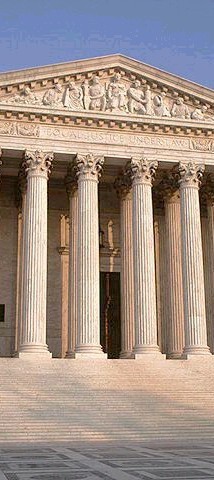The Nation’s Top Ten Worst
State Attorneys General
by Hans Bader - January 24th, 2007 - Competitive Enterprise Institute
Like other government offices, the office of attorney general was designed to have limited powers, set forth by statute and constitution. Under all state constitutions, it is the legislature, not the state attorney general, which is vested with the authority to make laws and prescribe remedies for violations of the law. State constitutions give the attorney general no power to make or rewrite law. In fact, if the legislature has not conferred the authority on an attorney general to enforce a particular law, then the attorney general may well be exceeding his authority by bringing suit under it, violating constitutional checks and balances.
Federal law also limits attorney general power. If he attempts to regulate conduct in another state, that may violate not only state law, but also the due process and commerce clauses of the U.S. Constitution, which forbid any state to impose its laws on another state, or to regulate commerce among states.
Unfortunately, many state attorneys general today find those constraints inconvenient. Over the past decade, attorneys general have increasingly usurped the role of state legislatures and Congress by using litigation to impose interstate and national regulations and to extract money from out-of-state defendants who have little voice in a state’s political processes. The worst offenders flaunt such abuse of power, with the most notorious of the lot, Eliot Spitzer, boasting that he “has redefined the role of Attorney General.”
This sort of activism may benefit the political and policy ambitions of the office holder and his allies, but it imposes real costs on consumers, businesses, the economy, and our democratic system. The wave of lawsuits brought by state attorneys general has fostered corruption, circumvented legislative checks on regulation, taxes, and government spending, made the workings of government less transparent, and diverted attention away from their core responsibilities—enforcing state laws, defending state agencies against lawsuits, and providing legal advice to public officials.
Of course the problem is we no longer have a separation of powers. Tyrannical judges allow these abuses of power to go unchecked since they increase the power of judges too. Plus, legislatures are dominated by lawyers who also see no reason to rein in the Attorney Generals and judges as long as they are increasing the power of lawyers overall. That benefits their pockets long term. There is no balance of power any more. Lawyers have all the power and use it to extort outrageous sums from the rest of us.
Welcome to the "rule of judges".


0 Comments:
Post a Comment
Subscribe to Post Comments [Atom]
<< Home